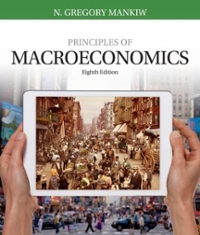Question
The supply of widgets in a small Michigan city is controlled by 2 producers -- Gratiot and Clinton. The inverse demand for widgets is P
The supply of widgets in a small Michigan city is controlled by 2 producers -- Gratiot and Clinton. The inverse demand for widgets is P = 30 - 2Q and the MC = ATC = $6. Each morning, Gratiot and Clinton make a binding decision about how many widgets to make. Suppose that Gratiot and Clinton agree to collude and evenly split the monopoly output and charging the monopoly price. Suppose that Gratiot cheats on the cartel agreement by producing 1 extra widget each morning.
How much profit did Clinton "lose" by Gratiot's cheating on the agreement?
What is the new market price after Clinton retaliates and produces an extra widget?
What is Clinton's "gain" in profit after this retaliation?
How much does Gratiot "lose" after Clinton's retaliation?
Will each (Gratiot and Clinton) continue to retaliate (that is, each produces 1 additional widget) 1 more time? Why or why not?
Step by Step Solution
There are 3 Steps involved in it
Step: 1

Get Instant Access to Expert-Tailored Solutions
See step-by-step solutions with expert insights and AI powered tools for academic success
Step: 2

Step: 3

Ace Your Homework with AI
Get the answers you need in no time with our AI-driven, step-by-step assistance
Get Started


